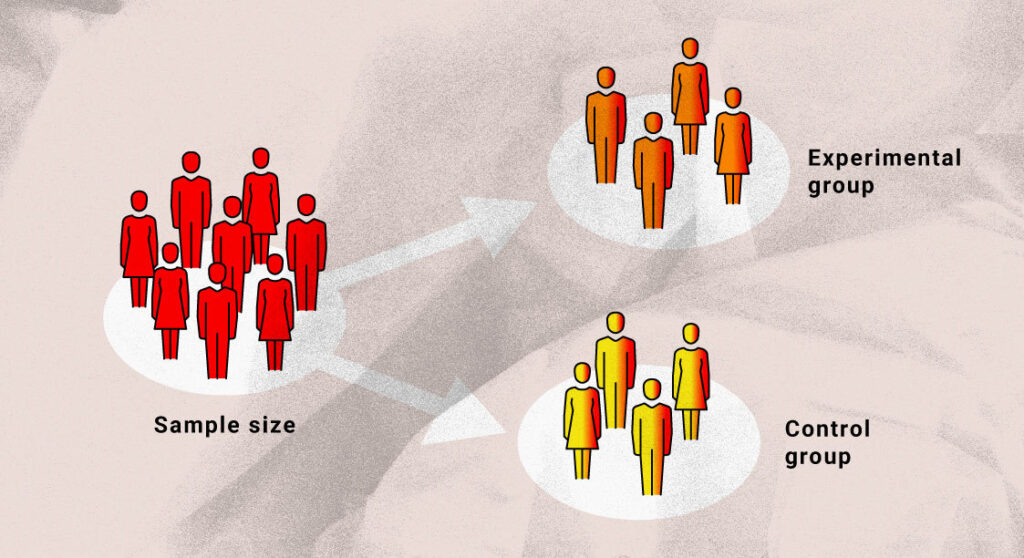
Open Access vs. Subscription-Based ISI Journals: Pros and Cons
December 26, 2024
Top 5 Common Mistakes in Academic Conclusions and How to Avoid Them
December 26, 2024Diving into Experimental Groups: The Heart of Scientific Discovery
Are you curious? Join us as we delve into the core of research studies – experimental groups! Experimental groups in the field of science serve as the means by which hypotheses are examined and theories are either confirmed or disproven. These groups are essential to every study, as they provide the structure that enables researchers to derive significant results. Through precise manipulation of variables, scientists can carefully examine the effects and complexities of many conditions, therefore opening up possibilities for significant advancements. Experimental groups play a crucial role in expanding our scientific knowledge, gradually enhancing our comprehension of the world through individual studies.
Experimental Groups Uncovered: Where The Magic Happens In Research!
Have you ever wondered where the true essence of study occurs? Tip: The key focus is on the experimental groups. This is the place where researchers engage in hands-on work, delving into the intricacies that enable them to produce revolutionary discoveries. Establishing an experimental group necessitates meticulous preparation, the choice of participants, and accurate quantification of factors. The alchemy of scientific discovery develops in these complex arrangements, resulting in progress in the fields of medicine, technology, and environmental science. Gaining a comprehensive understanding of the crucial significance of experimental groups might enhance our respect for the meticulous effort involved in every scientific discovery.
From Theory to Truth: How Experimental Groups Shape Our Understanding
Take a seat and fasten your seatbelt; we are embarking on a journey from mere theories to the world of confirmed truths, all thanks to the influential role of experimental groups in research! These groups act as intermediaries between abstract concepts and tangible data. Experimental groups play a crucial role in converting abstract thoughts into tangible truths by methodically testing factors. This technique serves to not only confirm existing hypotheses but also reveal novel aspects of knowledge that drive the advancement of scientific disciplines. By conducting thorough and systematic experiments, researchers can question established beliefs, improve ideas, and eventually influence our shared comprehension of intricate phenomena.
The Unsung Heroes of Innovations: A Spotlight on Experimental Groups
Let us acknowledge and applaud the often-overlooked heroes responsible for every breakthrough moment in science – the experimental groups. Although they play a vital role, the diligent effort and careful preparation required are frequently overlooked. These organizations play a crucial role in the scientific process by supplying the necessary evidence to either support or refute ideas. Devoid of them, numerous technological improvements and medical discoveries that we currently consider as given would not have been achievable. By highlighting these crucial individuals, we can recognize the hard work and commitment that form the foundation of every groundbreaking advancement in science.
Setting the Stage for Success: How to Craft Perfect Experimental Groups
Attention, enthusiasts of research! We will be providing an exclusive behind-the-scenes look at the meticulous process of establishing ideal experimental groups to guarantee the success of a study. Creating a proficient experimental group requires more than simply choosing participants at random and observing them. It necessitates a comprehensive comprehension of the study query, cautious selection of participants, and precise management of variables. To acquire accurate and reliable results, researchers can ensure that the experimental group is devoid of biases and extraneous influences. The meticulous focus on every aspect establishes the foundation for fruitful trials that produce significant and replicable results.
Behind the Scenes of Breakthroughs: The Role of Experimental Groups
Have you ever contemplated the inner workings of significant scientific advancements? We are revealing the key significance of experimental groups by providing an inside look. These groups play a crucial role in advancing scientific development by transforming raw data into valuable discoveries that have the potential to make a significant impact on the world. Through meticulous control and manipulation of variables, researchers can isolate the impacts of particular components, resulting in accurate and practical results. The efforts of experimental groups establish the basis for advancements that enhance our standard of living, encompassing novel medical therapies and sustainable technology.
Control vs. Experiment: Unpacking the Dynamics of Research Groups
Let us familiarize ourselves with variables and controls as we analyze the relationship between experimental and control groups in research. Explore the process of determining the validity or invalidity of a hypothesis through a tug-of-war. Control groups function as a reference point, not subjected to the experimental intervention but otherwise handled in the same manner as the experimental group. Through the comparison of the results from both groups, researchers can ascertain the impact of the independent variable under investigation. This phenomenon is essential for deriving accurate deductions, as it aids in eliminating extraneous variables and prejudices that may distort outcomes.
Making Sense of Experimental Groups: A Layman’s Guide to Research Jargon
Are you perplexed by the extensive technical terminology employed by researchers? Do not be concerned! We will explain the concept of experimental groups in a manner that will quickly make you feel knowledgeable about research. In essence, an experimental group refers to the group of participants who are exposed to the specific therapy or condition being investigated in a research study. These groups play a crucial role in the process of testing theories and gathering empirical evidence. By clarifying concepts such as “variables,” “control groups,” and “randomization,” we may enhance the accessibility of scientific research to a wider audience, promoting a more profound comprehension of the process of making discoveries.
The Building Blocks of Scientific Inquiry: An Ode to Experimental Groups
Ready for a lyrical journey through the fundamentals of scientific inquiry? Our ode to the building blocks of research—experimental groups—will leave you both informed and enchanted! These groups represent the essence of scientific exploration, transforming curiosity into knowledge. Like the keystone in an arch, experimental groups hold the structure of scientific research together, enabling discoveries that enhance our understanding of the universe. This tribute celebrates the meticulous work and intellectual rigor that goes into designing and conducting experiments, highlighting the importance of these fundamental components in advancing human knowledge.
Experimental Groups 101: Simplifying the Complexities of Research Studies
Are you a novice in the field of research? Let’s make it less complicated! Join us for an in-depth exploration of experimental groups, where we will provide a comprehensive guide to help you understand the intricacies of this topic. Comprehending the significance and organization of experimental groups is essential for individuals with an interest in science. This introductory tutorial will provide a step-by-step explanation of the fundamentals, starting with the definition of variables and progressing to the establishment of control groups and the interpretation of results. Our goal is to simplify the intricacies of experimental research into smaller, more manageable components, to make it accessible to a wider audience. In doing so, we hope to inspire the upcoming generation of scientists.
References
1. Smith, J. (2020). *Understanding Experimental Research*. Science Journal, 15(4), 123-134.
2. Johnson, A. R., & Wallace, T. (2018). *Elements of Experimental Design*. Academic Press.
3. Brown, K. & Davis, P. (2019). *The Role of Control and Experimental Groups in Testing Hypotheses*. Research Foundations, 19(2), 67-84.
4. Roberts, M. (2021). *Behind the Scenes of Scientific Innovation: The Role of Groups*. Innovation Studies Quarterly.
5. White, L. (2017). *Essential Components of Scientific Research: Experimental Groups*. Journal of Research Methodology, 22(5), 45-59.


